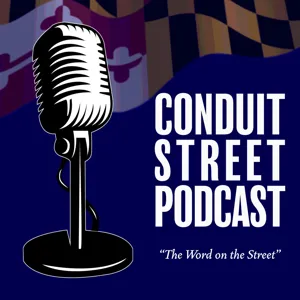Counties Gain an Edge Through NACo

On the latest episode of the Conduit Street Podcast, Michael Sanderson and Shantelle Malcolm-Lym welcome guest Cathy Muse from the National Association of Counties Edge program. She talks through the various cost-saving tools available to all Maryland counties through NACo's partnerships that can help develop attractive employee benefits, manage public funds, and recruit top talent to the public sector.
Muse draws on her own experience as a procurement specialist to explain NACo's newly launched Public Promise Procurement offerings, leveraging a fully competitive lead-agency model to streamline major purchases by counties - another great tool to help counties get the most from their tax dollars.
Cathy has served in public procurement for over 40 years at the federal, state, and local levels. After retiring from Fairfax County, Virginia, where she served as the Chief Procurement Officer, Cathy joined the NACo EDGE team to develop procurement solutions for counties and launch Public Promise Procurement.
The Conduit Street Podcast is available on major platforms like Spotify, Apple, Google, and anywhere else you get your podcasts. Episodes are also available on MACo's Conduit Street blog.
Useful Links
National Association of Counties: Tools for Counties